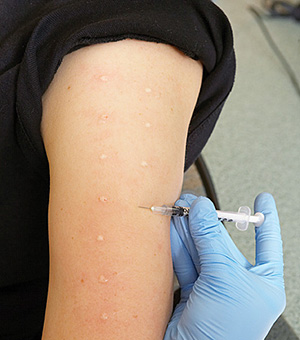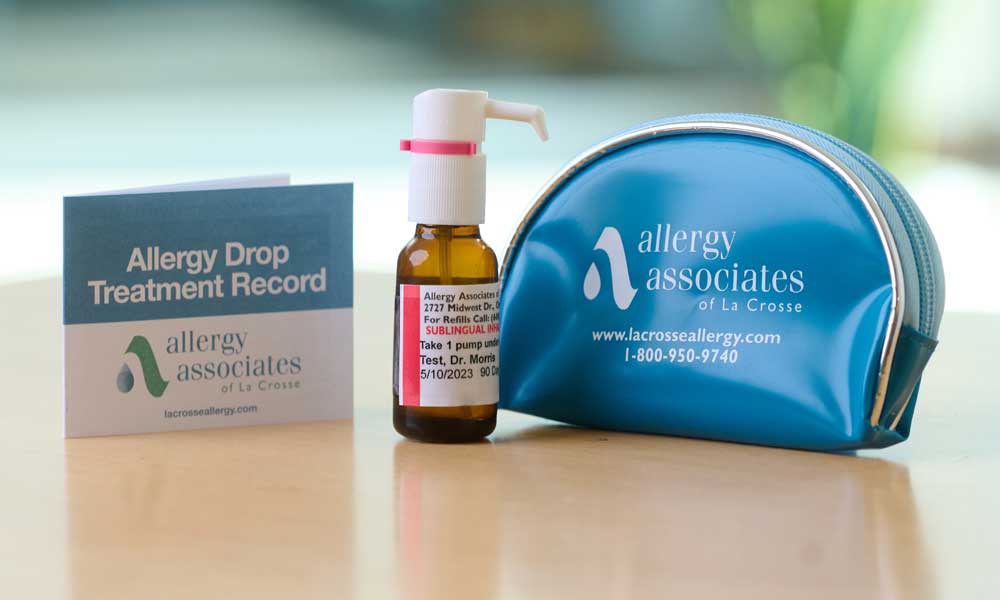Your pre-visit questionnaire and your history and exam help your provider order the best allergy tests during your visit.
Please review which medications to stop taking before your appointment. Some medications affect skin test results’ accuracy. If you’ve continued your medications, tell your provider at your appointment before testing.
 Skin testing
Skin testing
Skin testing identifies allergies to common environmental items like dust, mold, pollens, and/or animal dander. Tests are typically done on your upper arm (see picture to the right). We use a small needle to inject allergen under the top layer of skin, which feels like a mosquito bite. For kids, we have tools to make it easier and explain the process in a kid-friendly way.
Blood test
We may use a blood test to measure specific levels of allergy antibodies to suspected allergens. A single blood draw can help identify food and environmental allergies. If you’re sensitive to skin testing, blood testing may be an alternative.
Asthma testing
Breathing or lung capacity tests may be done if you have a history of asthma or breathing difficulty.
Component-based allergy testing
Component-based allergy testing is a sophisticated, precise test that shows your reactivity and the severity of reactions to specific allergies. A few allergenic molecules, such as those in peanuts (Ara h2) or eggs (OVM Gal d 1) for example, could trigger severe allergic reactions. We may use these tests for patients who are suspected of being highly reactive to foods, along with those who have strong sensitivities to dust mite, tree pollens, pets, egg, milk, wheat, peanut, soy, fish, and shellfish. This diagnostic test helps us optimize your allergy drop treatment by:
- Revealing the specific sensitizing source.
- Defining markers with risk of severe allergic reactions.
- Resolving cross-reactivity among allergens.
Graded oral food challenge testing
Oral challenge tests identify your reactions to certain foods and help us safely increase doses during treatment. This can also lead to a Graded Oral Food Challenge to decide when you’ve reached tolerance. Our clinical staff monitors challenges to make sure you do not have a serious reaction.
Request an Appointment
